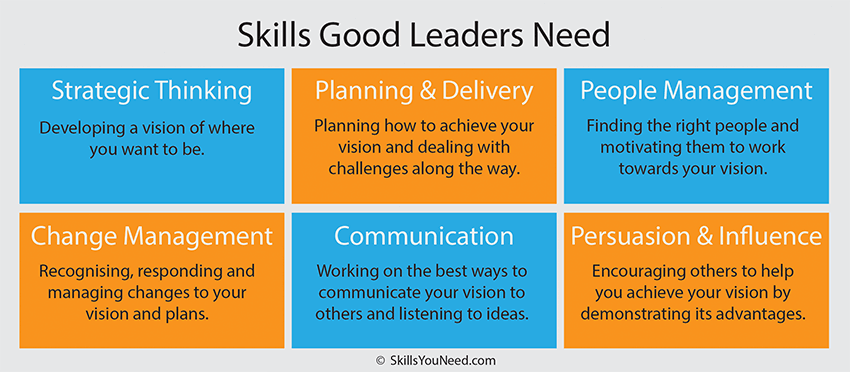Within today's fast-paced and dynamic business landscape, effective leadership is increasingly important than before. One of the main factors of good leadership is found in the ability to empower your team via delegation. This practice is more than about distributing tasks; it is about entrusting your team members with responsibilities that can enhance their skills and confidence, fostering a environment of development and collaboration. Being a leader, mastering this skill can greatly boost team performance and team spirit, enabling you to concentrate on strategic initiatives as your team thrives in their roles.
To effectively delegate, leaders must have a toolkit of essential leadership skills. From emotional intelligence to effective communication and adaptability, each skill plays a vital role in how leaders engage with their teams and navigate challenges. Understanding how to inspire and Lifelong learning , build trust, and communicate clearly can change your team dynamics and lead to outstanding results. This article will discuss the most important leadership skills every professional should master, with a particular emphasis on how delegation can empower and lift your team to new heights.
Key Managerial Skills

Successful leadership is built on a foundation of essential skills that empower leaders to guide their teams toward success. One of the most critical skills is effective communication. Leaders must convey their vision effectively and ensure that team members understand their responsibilities and expectations. This skill facilitates collaboration and builds relationships inside the team, leading to increased engagement and productivity.
Another crucial leadership skill is interpersonal intelligence. Leaders who demonstrate high emotional intelligence can navigate interpersonal relationships thoughtfully and with understanding. This ability lets them engage with team members on a individual level, recognize their motivations, and respond to emotional cues suitably. By fostering an emotionally intelligent environment, leaders can cultivate a culture of assistance and trust, ultimately enhancing team performance.
Agility is also essential in today's dynamic and ever-changing landscape. Leaders must be prepared to pivot strategies and approaches as circumstances shift. This willingness to adapt not only assists in addressing immediate challenges but also encourages a progress mindset inside the team. When leaders exemplify adaptability, they enable their teams to accept change, innovate, and remain resilient in the face of uncertainty.
Creating Efficient Communication Skills
Impactful communication is essential for successful leadership, as it acts as the bedrock of group working together and insight. Leaders must express their goals clearly, ensuring that team members understand not only that which is expected of them but also the larger goals of the organization. This clarity aids avoid misunderstandings and aligns everyone towards shared objectives, encouraging a sense of unity and mission within the team.
Furthermore, strong leaders value active listening, which is an integral component of efficient communication. By truly listening to their team members, leaders can gain valuable information, tackle concerns, and foster an environment where everyone feels respected and acknowledged. This two-way communication reinforces trust and facilitates open dialogue, enhancing team dynamics and making it easier to navigate challenges together.
In conclusion, social intelligence holds a key role in communication skills for leaders. By being mindful of their own emotions and those of their team members, leaders can customize their communication styles to more successfully connect with individuals. This sensitivity not only enhances interpersonal relationships but also helps in managing disputes and motivating team members, ultimately leading to a more cohesive and productive work environment.
The Strength of Delegation
Delegation is a key skill in leadership that strengthens teams and improves overall performance. By distributing responsibilities to team members, leaders merely lighten their own workload but also allow employees to develop their skills and build confidence. This thoughtful allocation of work promotes a sense of accountability within the team, resulting in enhanced motivation and superior outcomes.
When leaders delegate wisely, they foster an environment of confidence and teamwork. Team members sense their worth and respected for their contributions, which in turn improves team dynamics. Effective delegation entails not just passing on tasks, but also supplying the necessary assistance, tools, and guidance to ensure that team members can succeed. By doing so, leaders can nurture a culture where everyone is empowered to take initiative and contribute to the team's goals.
In addition, mastering the skill of delegation prepares leaders for upcoming challenges. As organizations transform and consumer expectations shift, leaders who are adept in delegation can adapt more readily. They can prioritize strategic strategy and vision casting, knowing that their teams are prepared of managing routine tasks. This not just enhances efficiency but also cultivates a resilient team that can thrive in the face of adversity and challenges.
